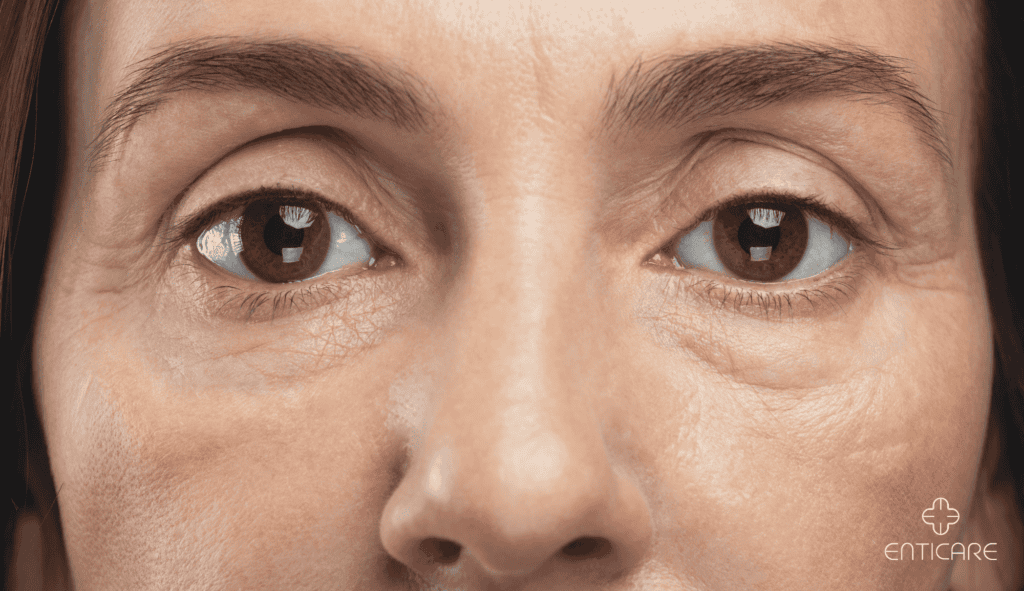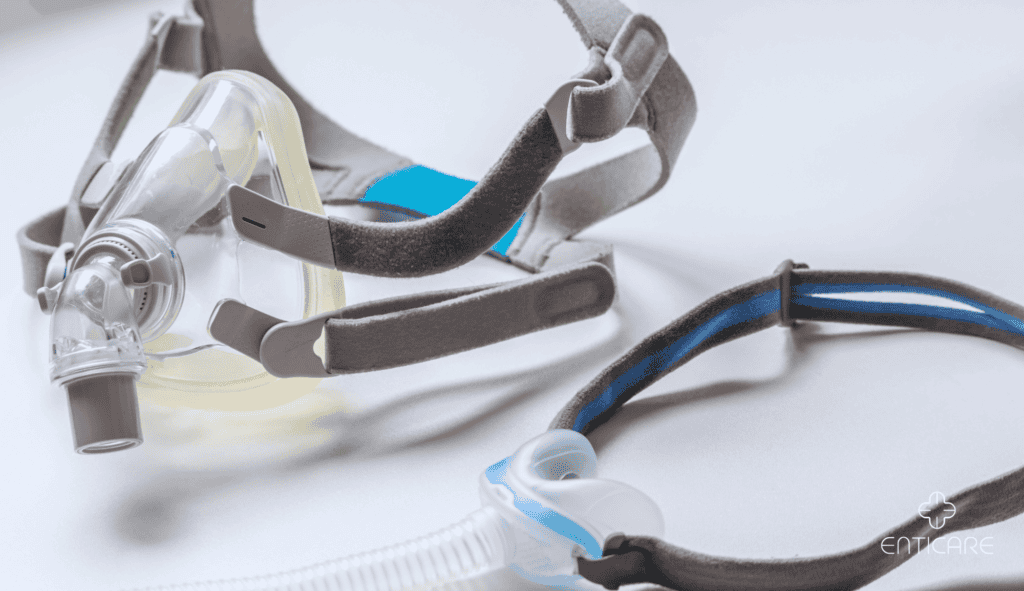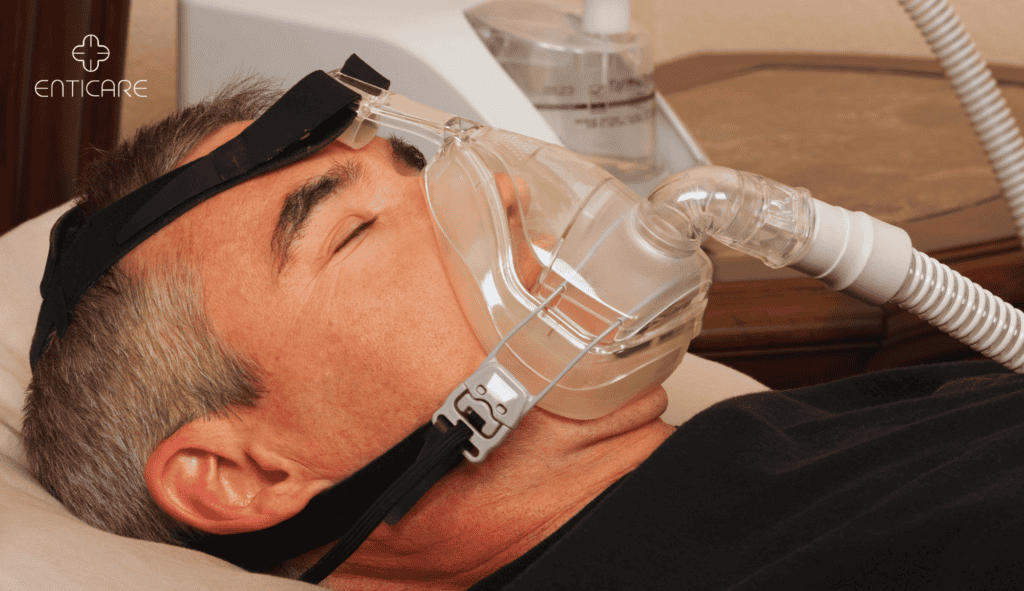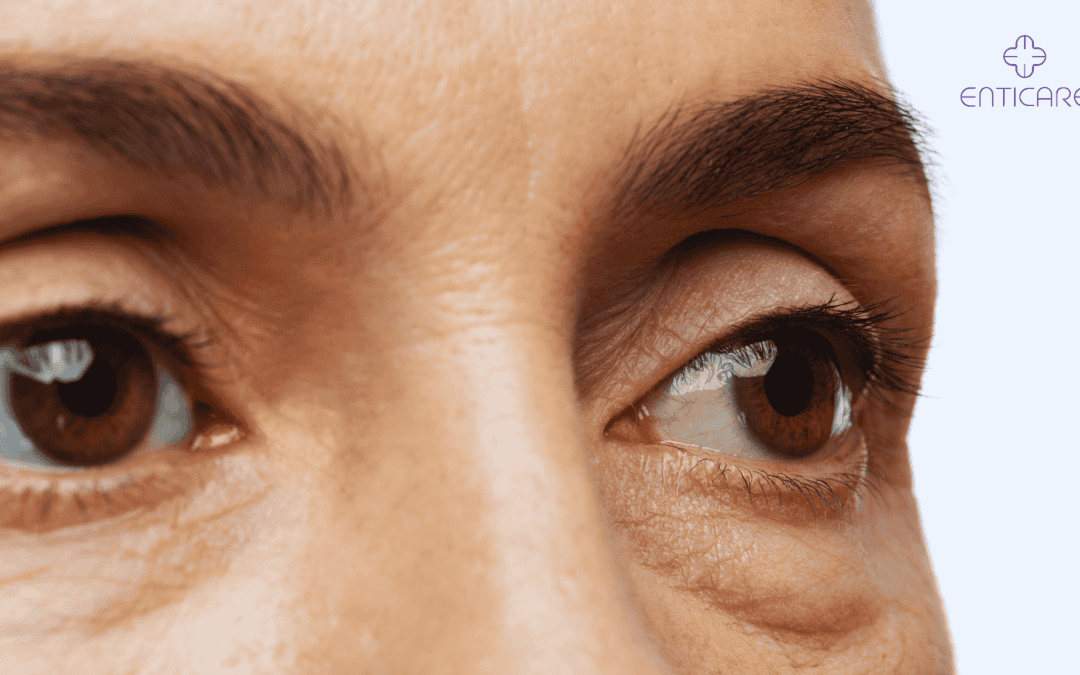Using a CPAP (Continuous Positive Airway Pressure) machine is one of the most effective treatments for sleep apnea. This machine helps keep the airways open during sleep, allowing for better oxygen flow and improved rest. However, some users report experiencing puffy eyes after using their CPAP machine. This side effect can be frustrating, especially when the goal is to improve overall health and well-being. Puffy eyes can occur for a variety of reasons, but fortunately, solutions and preventive measures can help. One potential solution to consider is using nasal pillow masks, which may reduce the occurrence of puffy eyes.

Understanding Puffy Eyes After CPAP Use
What Causes Puffy Eyes After CPAP?
The CPAP machine forces air through a mask into the nasal passages and throat, but this pressure can sometimes lead to puffy eyes. When air leaks from the mask and enters the tissues around the eyes, it can cause swelling and fluid retention, leading to puffiness. Leaking air can also contribute to discomfort, such as dry eyes, during sleep. This can be especially problematic if the mask doesn’t fit properly or the pressure settings are too high. Using nasal pillows as an alternative to traditional masks might help reduce air leakage and alleviate these issues.
How Air Leaks Cause Eye Puffiness
Air leakage occurs when the CPAP mask does not form a proper seal around the face. When air escapes, it can travel through the nasal passages and accumulate in the tissue around the eyes. This can result in swollen eyelids or puffiness, particularly upon waking, and may also cause eye irritation. Leaking air can also lead to discomfort, such as dry eyes. To address this, check the mask’s seal and ensure a proper fit. If issues persist, consider replacing the mask or trying different types to mitigate the problem.
Dry Air and Allergens
Dry air and allergens can exacerbate puffy eyes and dry eyes in CPAP users. To combat this, it’s essential to maintain a humid environment in the bedroom. Using a humidifier can help add moisture to the air, reducing the risk of dry eyes and puffy eyes. Additionally, regular cleaning and dusting of the bedroom can help remove allergens that may be contributing to eye irritation. Using an air filter can also reduce allergens in the bedroom.

Common Mask-Related Issues Leading to Puffy Eyes
Ill-Fitting CPAP Mask
A poorly fitting mask is one of the primary causes of puffy eyes. If the mask is too loose or too tight, it may not create an effective mask seal, leading to leaking air. This not only reduces the effectiveness of your CPAP therapy but also increases the likelihood of waking up with swollen eyes.
Mask Pressure Settings
High air pressure can exacerbate the issue. While higher pressure settings ensure more oxygen reaches your lungs, it can also force air into areas around your eyes, causing puffiness. Finding the right pressure balance is key to preventing side effects like eye swelling and pressure sores.
Material of the CPAP Mask
The type of material used in the mask can irritate the skin or cause allergic reactions, leading to inflammation and puffiness. Certain mask materials may not work well for individuals with sensitive skin, increasing the risk of puffy eyes and skin irritation.
How to Manage Puffy Eyes After CPAP Use
Adjust Your Mask Fit
Ensuring your CPAP mask fits properly is crucial for both therapy success and reducing side effects like puffy eyes. If the mask feels too tight, try adjusting the straps to ensure a snug but comfortable fit. If air continues to leak, you might need a different size or style of mask, or consider using a mask cushion to improve the fit and reduce air leakage.
Lower the Air Pressure
Talk to your doctor about adjusting the pressure settings on your CPAP machine. Reducing the air pressure may alleviate the problem of air leaking into the area around the eyes, minimizing swelling. Additionally, utilizing pressure relief features can help reduce the impact of high pressure settings.
Use Cold Compresses
If you wake up with puffy eyes or eye swelling, placing a cold compress or chilled cucumber slices over your eyes can help reduce swelling. The cold temperature constricts blood vessels and minimizes fluid buildup, which will help you look and feel better quickly.

Preventing Puffy Eyes from CPAP Use
Try a Different Mask Style
There are various CPAP mask styles, such as nasal masks, full-face masks, and nasal pillow masks. If one type is causing puffiness or leaking air, switching to a different style may solve the issue. For example, nasal pillow masks tend to cover less of the face, which may help reduce eye puffiness.
Use Mask Liners
Mask liners act as a barrier between your skin and the mask, providing additional comfort and creating a better seal. These liners reduce air leakage, which can help prevent irritation, swelling, puffiness around the eyes, and improve mask comfort by reducing discomfort caused by leaking air.
Sleep in an Elevated Position
Sleeping with your head elevated on extra pillows can promote better fluid drainage throughout the night. This helps prevent the accumulation of fluid around the eyes, reducing puffiness in the morning and alleviating fluid retention.
Additional Tips for Preventing Puffy Eyes
In addition to using a humidifier and adjusting CPAP machine settings, there are several other tips that can help prevent puffy eyes:
- Use a full-face CPAP mask to help distribute air pressure evenly and reduce the risk of puffy eyes.
- Apply artificial tears or eye drops before bed to help lubricate the eyes and reduce irritation.
- Avoid using a ceiling fan or other devices that can blow air directly onto the face, as this can exacerbate puffy eyes.
- Try to fall asleep on your back to reduce the risk of puffy eyes, as sleeping on your side can cause the face to become compressed and lead to puffy eyes.
- Use an eye mask to help reduce puffiness.
When to Seek Professional Help
Persistent Puffy Eyes
If your eyes continue to swell despite adjusting your CPAP mask or trying various preventive measures, it’s essential to consult your doctor or a sleep specialist. They can help identify underlying causes and make necessary adjustments to your treatment plan. Additionally, consider scheduling an eye examination to rule out any other potential issues.
Eye Problems or Infections
In some cases, puffy eyes can signal more serious eye conditions, such as conjunctivitis or other infections. If you experience redness, pain, or discharge in addition to puffiness, see an eye doctor for a thorough examination.
Schedule a Consultation for Personalized CPAP Therapy Solutions
Experiencing puffy eyes after using your CPAP machine can be uncomfortable and frustrating, but it doesn’t have to be a permanent issue. By making a few adjustments and consulting with your healthcare provider, you can reduce swelling and ensure your CPAP therapy remains effective. If the issue persists, it is advisable to consult an eye specialist for further evaluation.
If you’re still struggling with puffy eyes or other side effects, it’s time to take action. Schedule an appointment with our sleep specialists today. We’ll help you find the right CPAP setup for your needs so you can enjoy restful, refreshing sleep without the unwanted side effects. Don’t let discomfort stand in the way of a good night’s rest!

